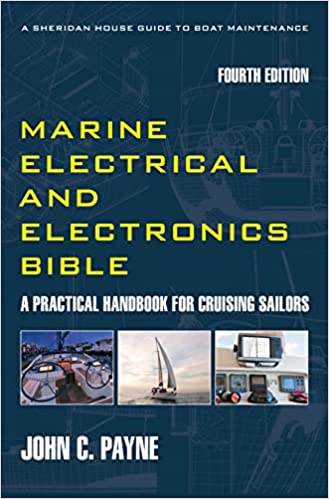Marine Refrigeration System
Essential Knowledge
Marine Refrigeration System design uses refrigerant gases for operation. The well known and most common gases up to date have been R22 and R12 and these have been phased out have been phased out due to the CFC effects on the ozone layer. This has been driven also by the 1990 Clean Air Act amendments. As a result the marine and automotive industry has had to develop new refrigerant gases that comply with this as well as offer efficient refrigeration.
There have been some 12 new refrigerants and 4 different types of oils. This means that you have to exercise caution as any mismatch will substantially affect the system performance and reliability or even destroy the marine refrigeration system.
The main refrigerant gas being used is HFC-134a, which is also known as R134. There are now standards for labeling, service equipment being used and service connectors to reduce the chances of mixing systems and the adverse results of oil and gas cross-contamination.
While industry has implemented these measures boat and marine refrigeration systems tend to lag, and systems should be clearly labeled with the type of oil and viscosity as well as the type of refrigerant used within the system.
Marine Refrigeration System
There are a variety of system configurations on the market to choose.
1. Hermetic sealed 110 or 220 volt AC systems with air or water cooling
2. Hermetic sealed 12-volt brushless compressor systems with air-cooling
3. Hermetic sealed 12-volt brushless compressor systems with water-cooling
4. Auxiliary engine belt-driven system with eutectic holding or cold plates.
5. DC 12 volt motor belt-driven or direct coupled.
6. Hermetic sealed 12-volt DC system with brush electric motor.
The 4th Edition of the Marine Electrical Electronics Bible Get your copy and start becoming self sufficient and save money on expensive technician callouts. The 4th Edition of the Marine Electrical Electronics Bible Get your copy and start becoming self sufficient and save money on expensive technician callouts.Marine Refrigeration System
Refrigerant Oils
1. Mineral Oils. The mineral oil is a wax free oil that has been used as a standard for refrigeration. When mineral oil it is mixed with Freon 12 and circulates through the entire system. Mineral oil does not mix with R134a refrigerant gas.
2. Alkylbenzene refrigerant oil is a synthetic aromatic hydro-carbon. This oil is compatible with mineral oil and has improved oil return characteristics over that of mineral oil. It may be used with most refrigerant gases but not with 134a. It should be noted that most new low temperature AC hermetic compressors use Alkylbenzene oil.
3. Polyol Ester oil must be used with R134a refrigerant. This oil is also compatible and acceptable for use with R12, R22, and 502. The majority of engine driven marine refrigeration systems use this oil.
Marine Refrigeration System Hermetic Compressor Troubleshooting Guide
Compressor Fails to Start
1. Power supply failed or tripped. If it is tripped then a fault exists on the compressor.
2. Motor overload device. Bridge out and recheck.
3. Relay defective. Replace same.
4. Compressor fault. There is not much you can do but call the service agents and see how much it will cost to replace.
5. Thermostat fault. Bridge out same and re-check same.
6. Connection fault. Check and tighten all terminations.
7. Motor Capacitor failure. There is not much you can do but call the service agents
Compressor Fails to Start (Makes humming sound)
1. Low voltage to compressor motor. All about checking the battery voltages again, run the engine and verify full voltage is at the compressor, and if it stays the same then it is a compressor fault.
2. Start relay faulty. There is not much you can do but call the service agents
3. Compressor internal fault. There is not much you can do but call the service agents
4. Defective start capacitor. There is not much you can do but call the service agents
5. Motor winding fault. There is not much you can do but call the service agents
Marine Refrigeration System
Compressor Trips on Overload
1. Low voltage to compressor motor. This is generally to do with low battery voltages except run the engine and see what happens when the alternator is running.
2. Motor winding fault. There is not much you can do but call the service agents
3. Compressor seizing. There is not much you can do but call the service agents
4. Start relay not opening. There is not much you can do but call the service agents
Compressor Runs Continuously
1. Low refrigerant charge. The system might need gas added to it.
2. Refrigerant leak. Do a leak check and repair, and then add gas.
3. Thermostat fault. Not a common fault but check the operation and replace if necessary.
4. Condenser is dirty. This needs cleaning, if water or air dirt accumulations dramatically impair performance.
The 4th Edition of the Marine Electrical Electronics Bible Get your copy and start becoming self sufficient and save money on expensive technician callouts.Marine Refrigeration System
Prior to choosing your yacht refrigeration system and if retrofitting your ice box survey the insulation. A well constructed and insulated ice box will have at least three or more inches of quality foam insulation. A well insulated freezer will have at least four or more inches of quality foam insulation. (I installed 5 inches on my project). Factors here also include the type of foam insulation, as well as the size and location of the lid opening. There are a variety of standards and these are all explained in the Marine Electrical and Electronics Bible.
Need more information on marine refrigeration systems? then why not go to Amazon and get one of my books to keep on board for easy reference on yacht refrigeration and marine refrigeration
